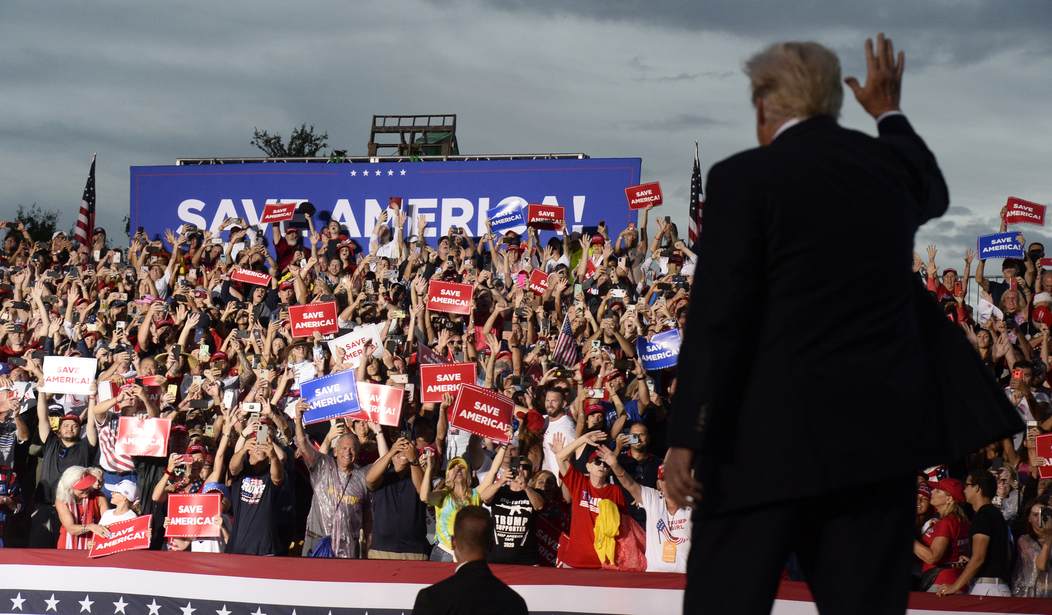Trump’s lawsuits against Big Tech — although most Americans aren’t likely to hear this any time soon — could prevail according to analysts and experts.
The familiar protest that private companies are not bound by the First Amendment is directly addressed in Trump’s lawsuits against the major tech companies; and the central argument that these particular private companies should be treated as agents of the state has precedent to support it.
“Their censorship constitutes state action because the government granted them immunity from legal liability, threatened to punish them if they allow disfavored speech, and colluded with them in choosing targets for censorship,” writes Vivek Ramaswamy, author of “Woke Inc.: Inside Corporate America’s Social Justice Scam,” in The Wall Street Journal, providing a litany of cases where private companies were either threatened by government to work on their behalf or did so voluntarily.
In an October 2020 hearing, as Mr. Trump’s lawsuits note, Sen. Richard Blumenthal of Connecticut told CEOs Jack Dorsey of Twitter and Mark Zuckerberg of Facebook: “The president has used this microphone to spread vicious falsehoods and apparent attempt to overturn the will of the voters.” In the same hearing, he threatened “a breakup of the tech giants” and “Section 230 reform,” including “possible repeal.” Mr. Zuckerberg has called such regulations an “existential threat” to Facebook. In January both sites banned Mr. Trump.
…
Even if Messrs. Zuckerberg and Dorsey didn’t fear these government threats, the Second Circuit held in Hammerhead Enterprises v. Brezenoff (1983) that if government officials’ comments “can be reasonably interpreted as intimating that some form of punishment or adverse regulatory action will follow the failure to accede to the official’s request,” that’s enough to constitute state action. The Ninth Circuit has held that it doesn’t matter if the threats were the “real motivating force” behind the private party’s conduct.
A growing body of evidence suggests that social media companies have voluntarily worked with Democratic officials to censor content the latter disfavor. In Brentwood Academy v. Tennessee Secondary School Athletic Association (2001), the high court held that state action exists if the private party’s conduct results from “significant encouragement, either overt or covert,” or if the private party is a “willful participant in joint activity with the State or its agents.”
According to allegations in other pending lawsuits, Twitter formed “trusted partner” relationships with state officials to remove content identified by the officials as election misinformation—when in reality the content was simply critical of state policies.
A group called the America First Policy Institute backs the lawsuit and told members of the press last week they expect the issue to ultimately make it to the Supreme Court.
“Ultimately, we are going to take [the case] all the way,” Brooke Rollins, president and CEO of the America First Policy Institute, said Thursday.
While the America First Policy Institute is not acting as the legal representation on the case, the group has “established the Constitutional Litigation Partnership,” which is composed of a team of lawyers who will argue the case. John Coale, a prominent, semi-retired D.C. lawyer, is one of the leading attorneys representing Trump. He is best known for his litigation against Big Tobacco in the 1990s.
Rollins, who served in the Trump administration’s Office of American Innovation and on the Domestic Policy Council, explained during Thursday’s press call that the legal action is an opportunity for conservatives to take action against the far left’s agenda.
“What this case brings to bear is the opportunity to go on offense and to really begin to retake our country and lift the Constitution up,” she said.
The class-action lawsuits, filed in conjunction with the America First Policy Institute, are the first big move made by Trump since leaving the White House. The suits target Facebook, Twitter, Google, and the companies’ CEOs. Trump is the lead representative.
With all the talk about whether or not Trump will make another run at the White House in 2024, it’s hard not to think these lawsuits might make that contest exceedingly difficult for him. And the media is already spinning the class-action suits as eyeroll-worthy and frivolous. But if there’s one thing the former president seems to enjoy most, it’s proving the press wrong. Perhaps this is exactly where his talents are best served; and, should he win, might make the most meaningful positive change for his supporters.












Join the conversation as a VIP Member